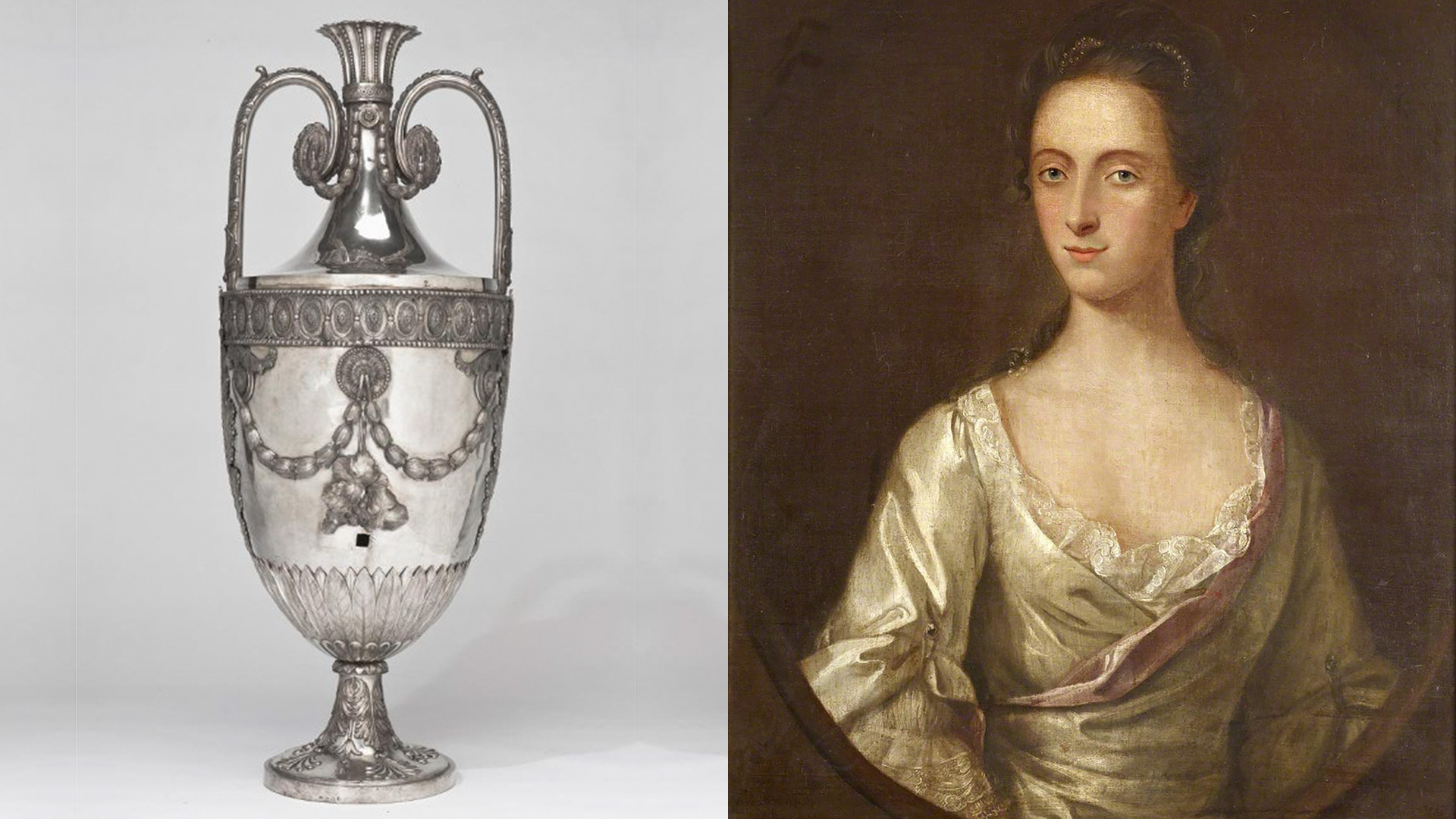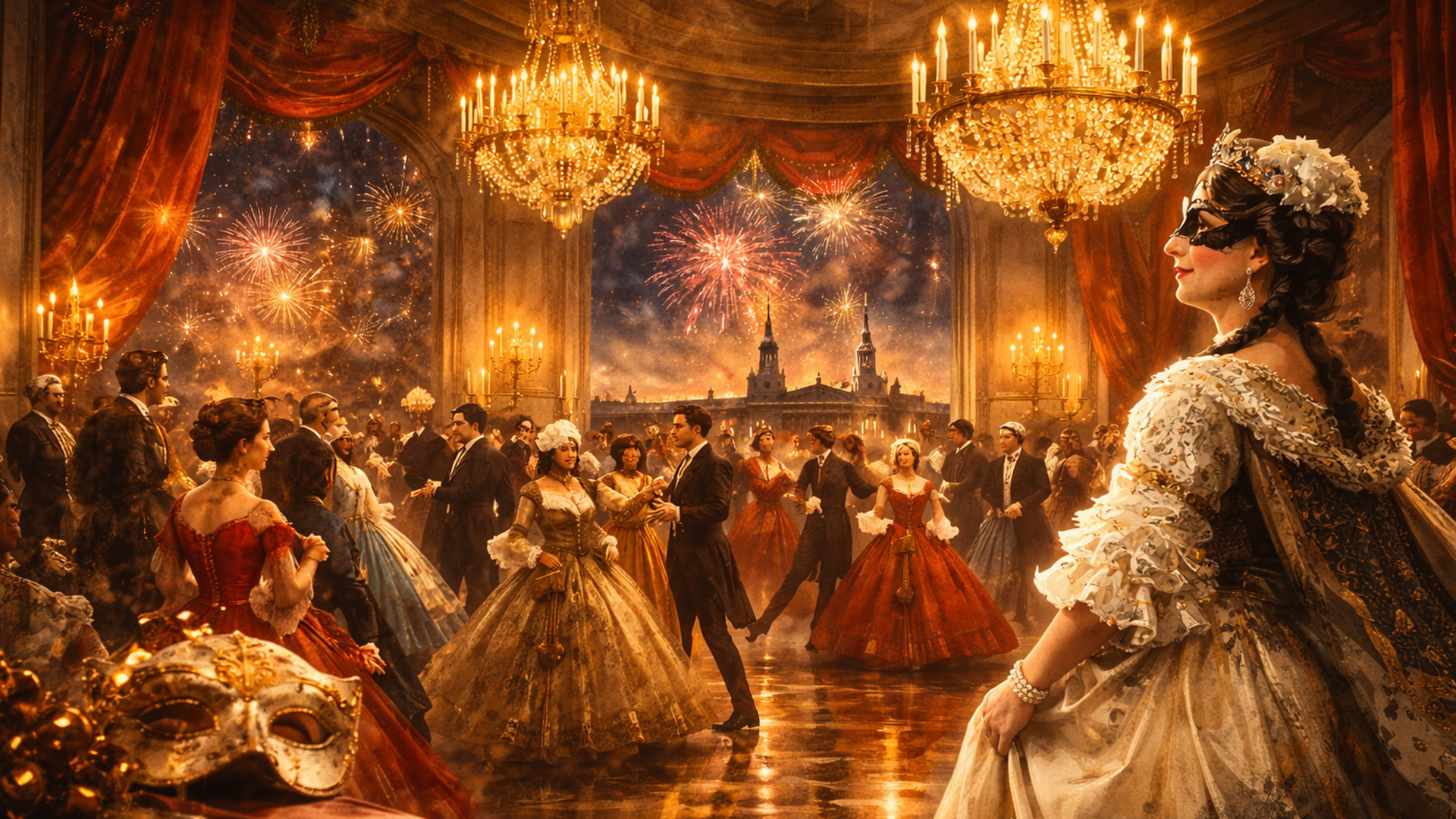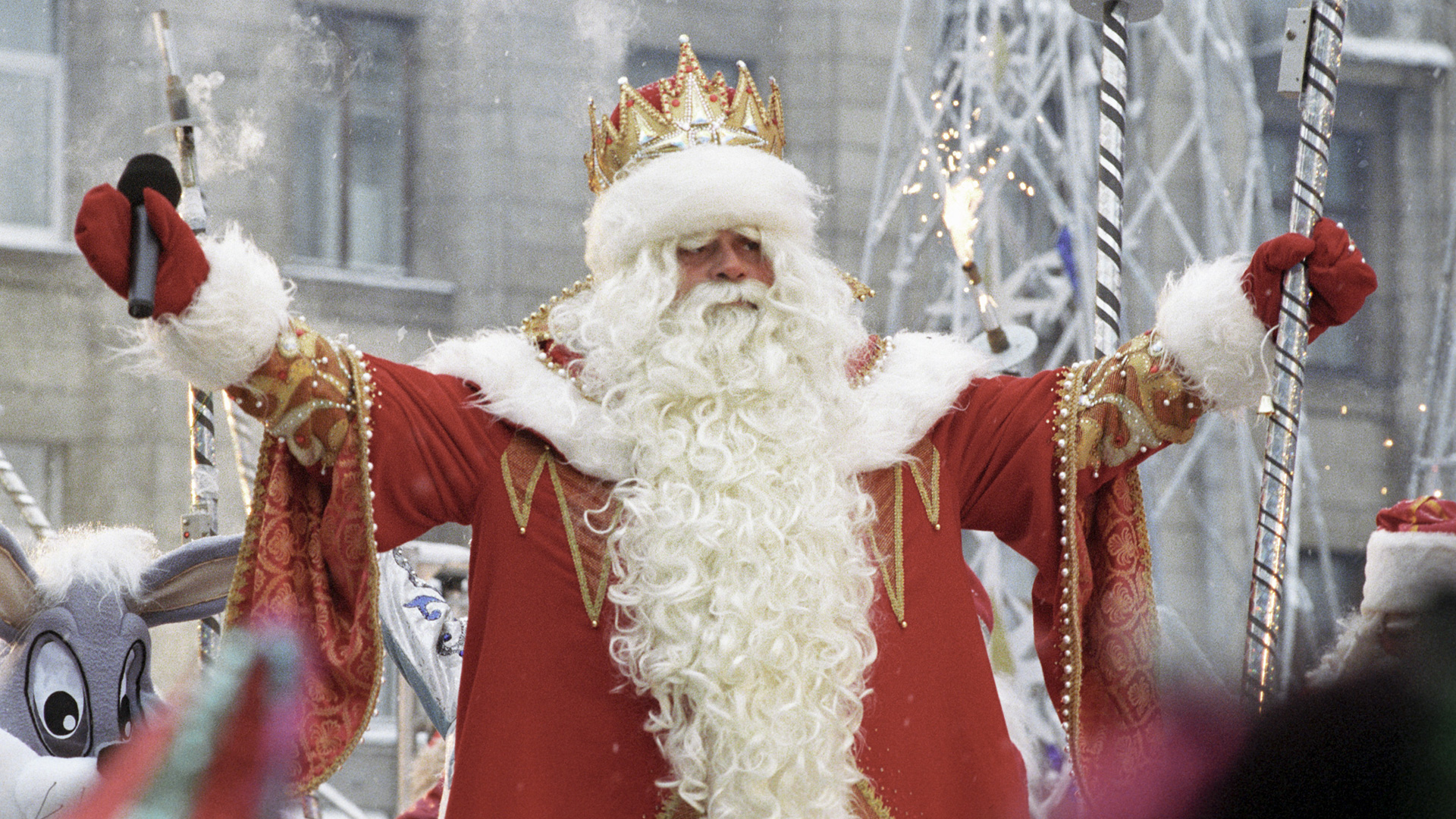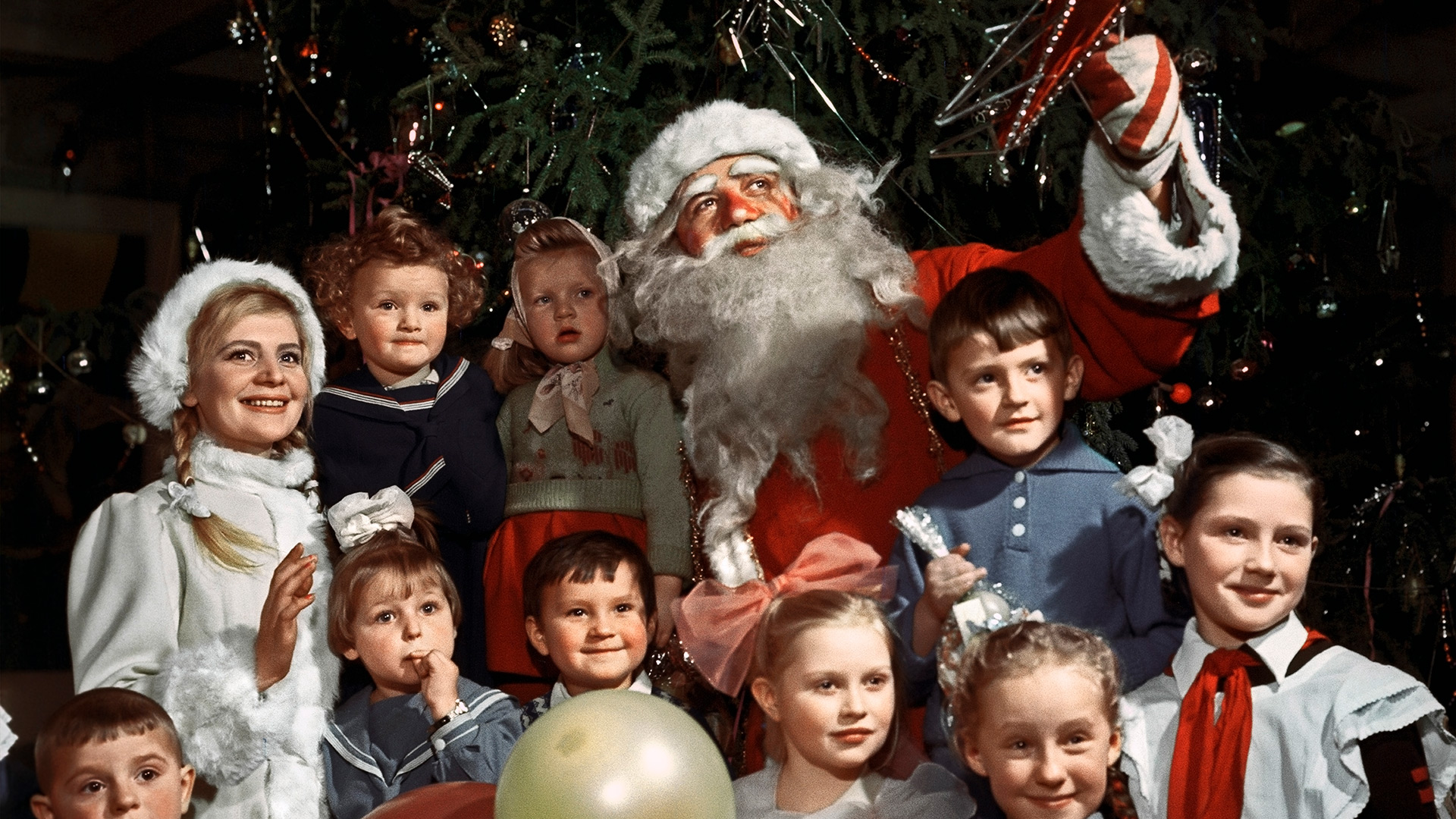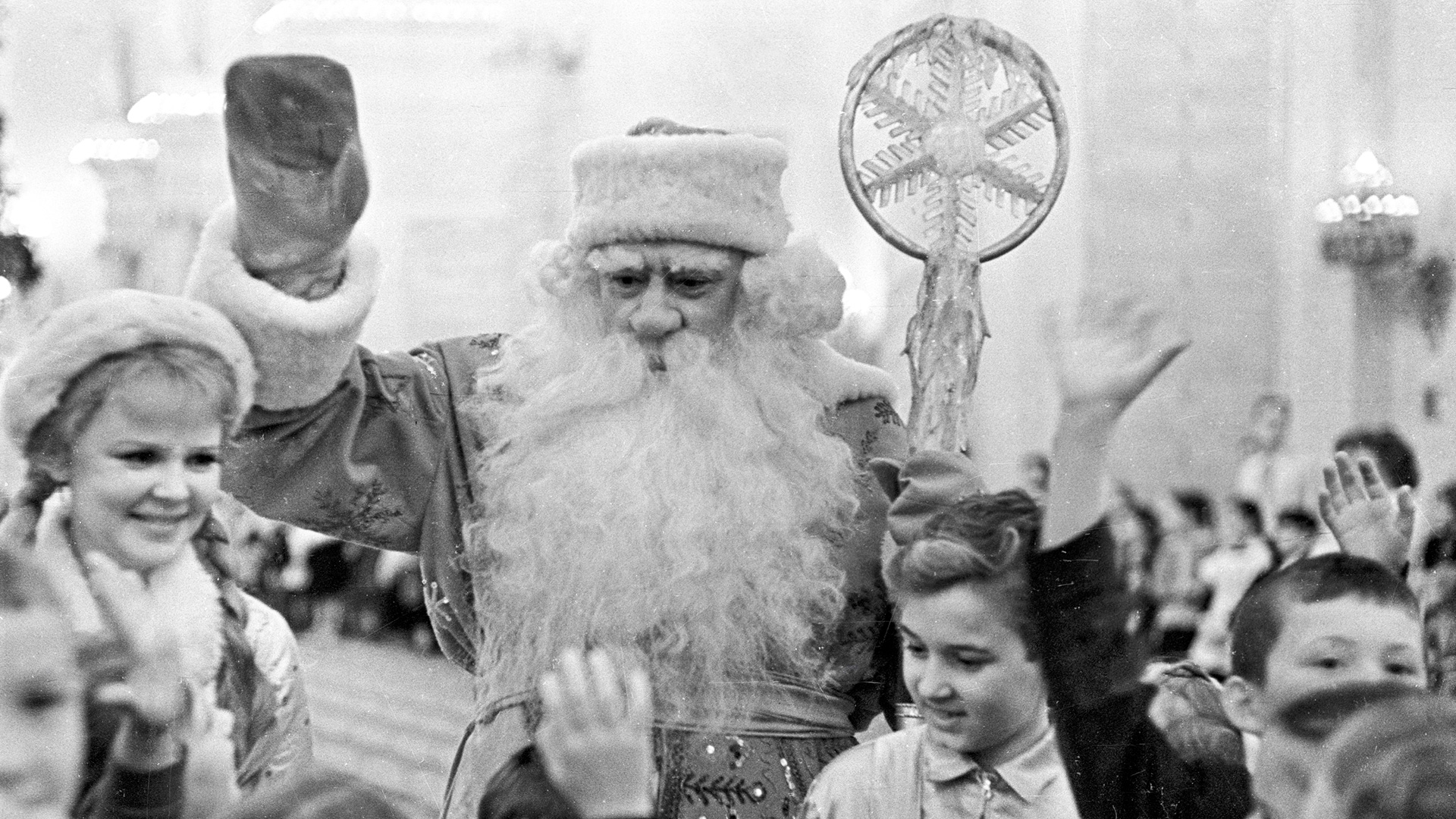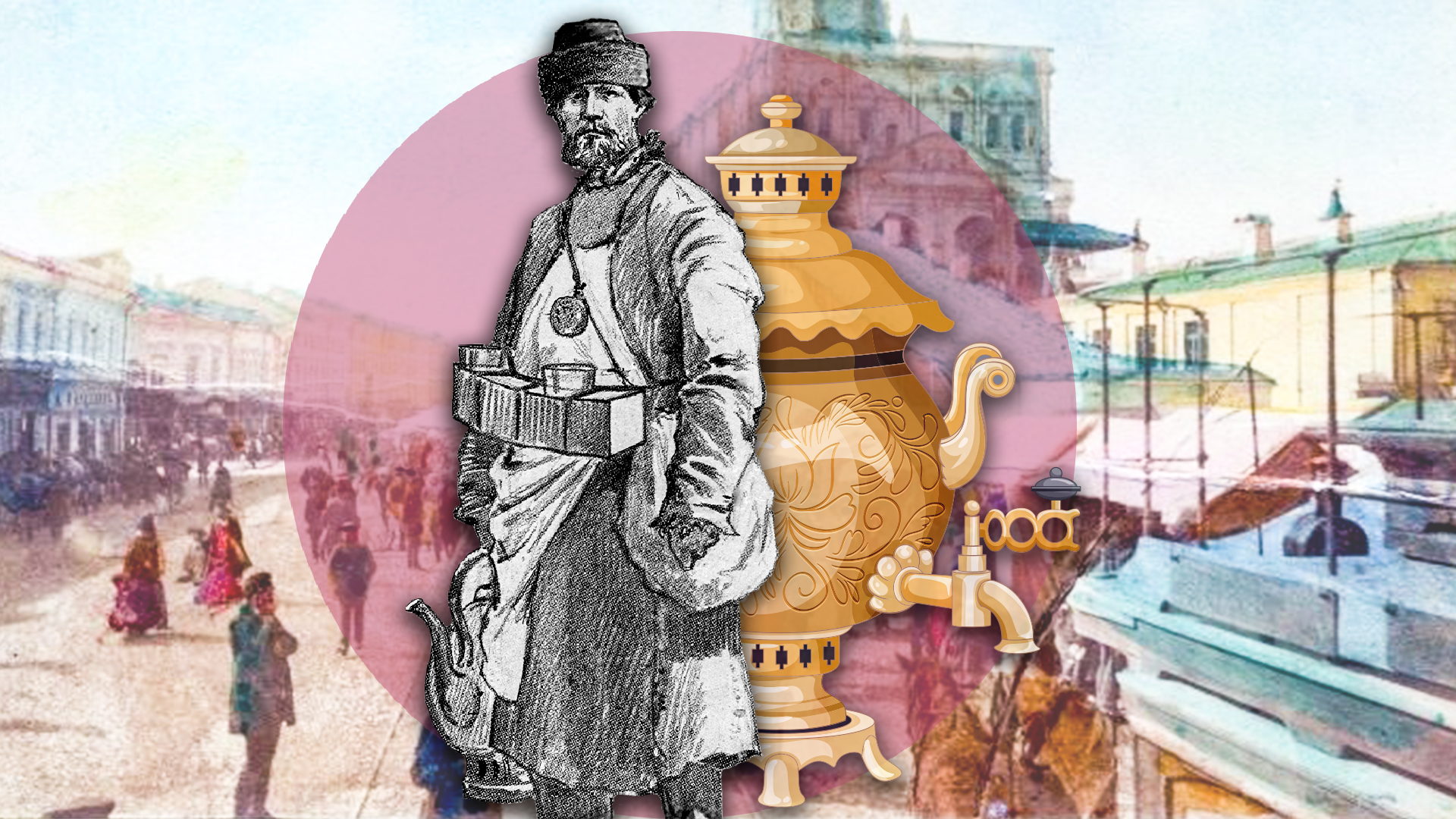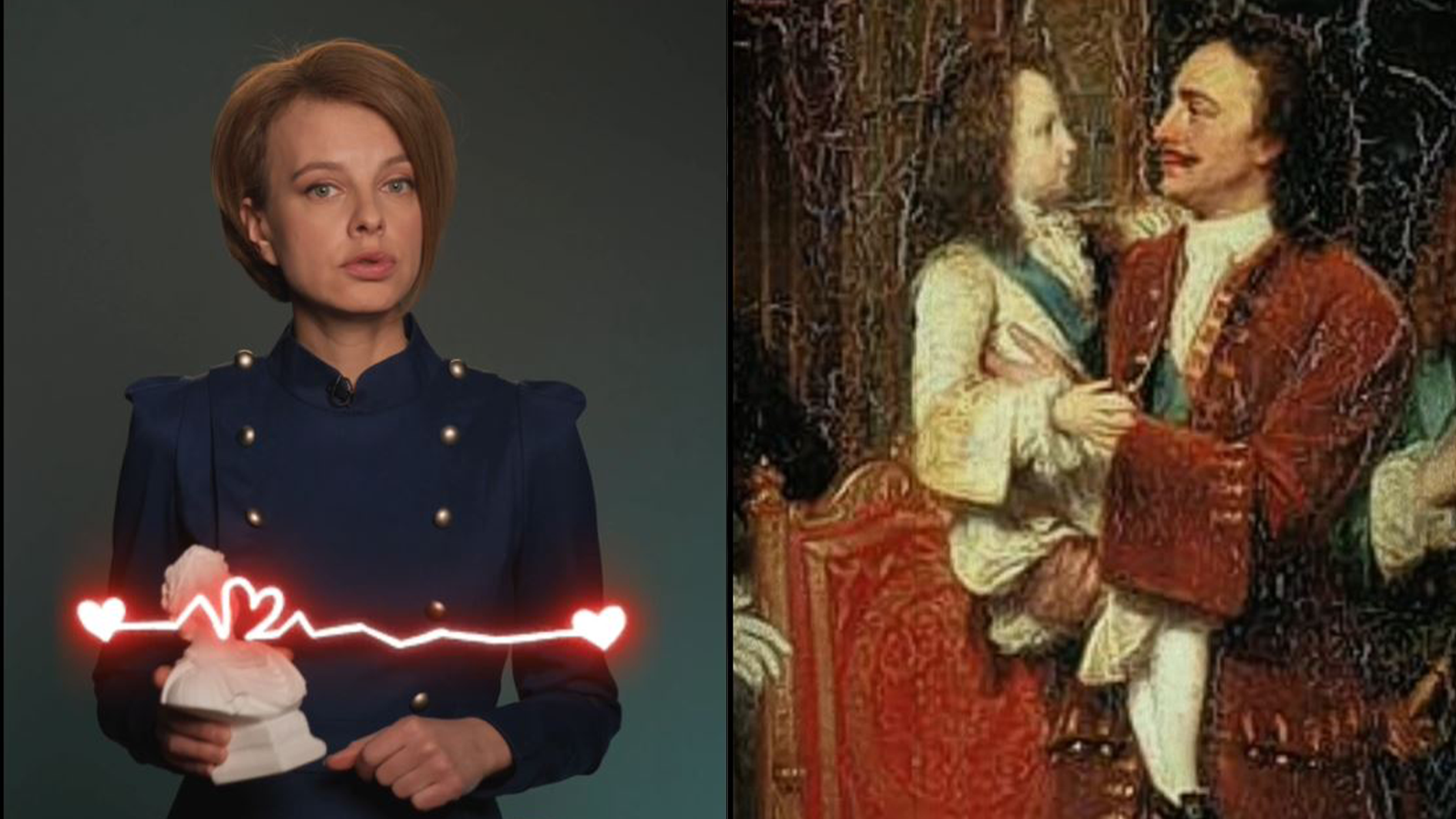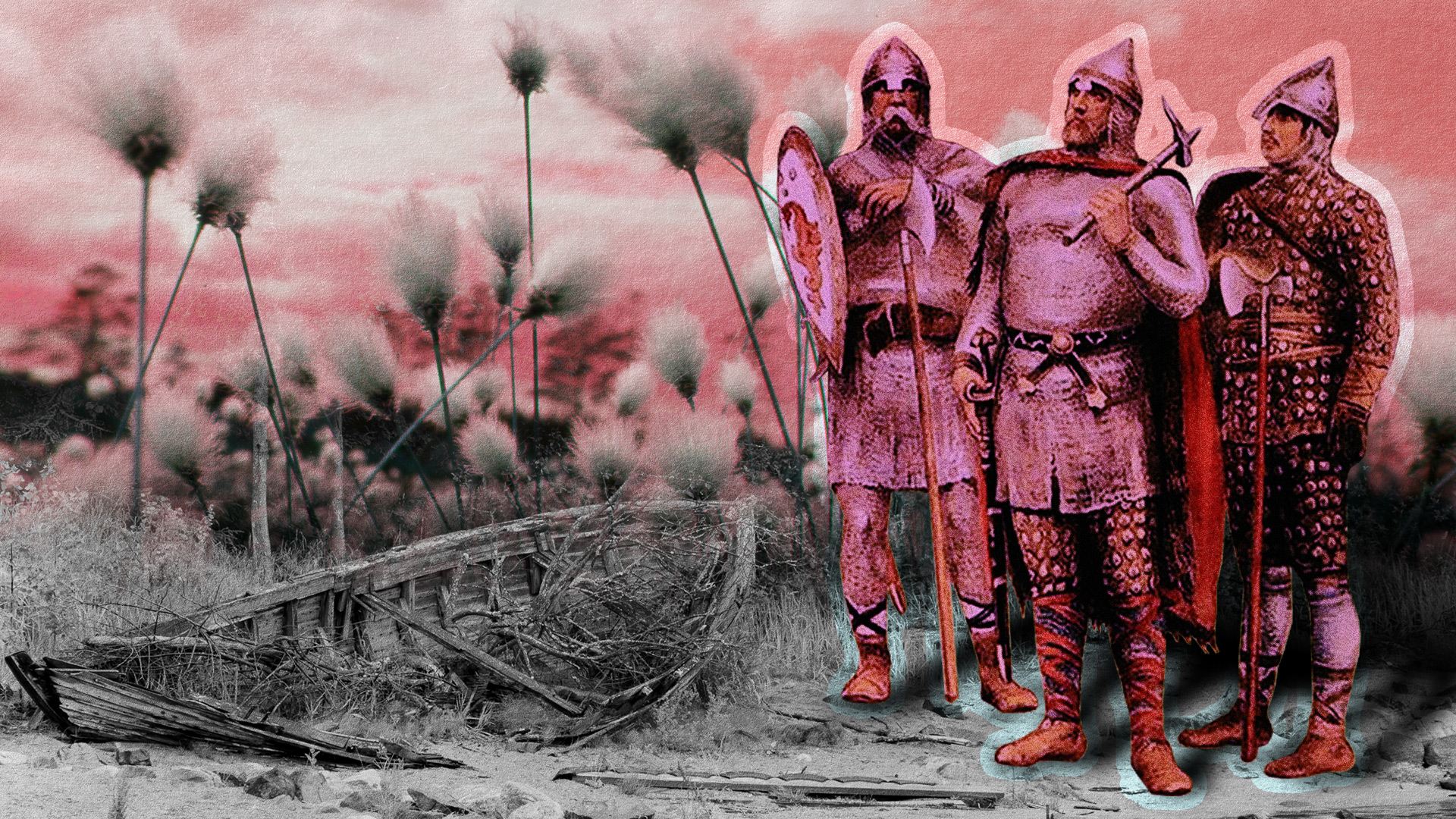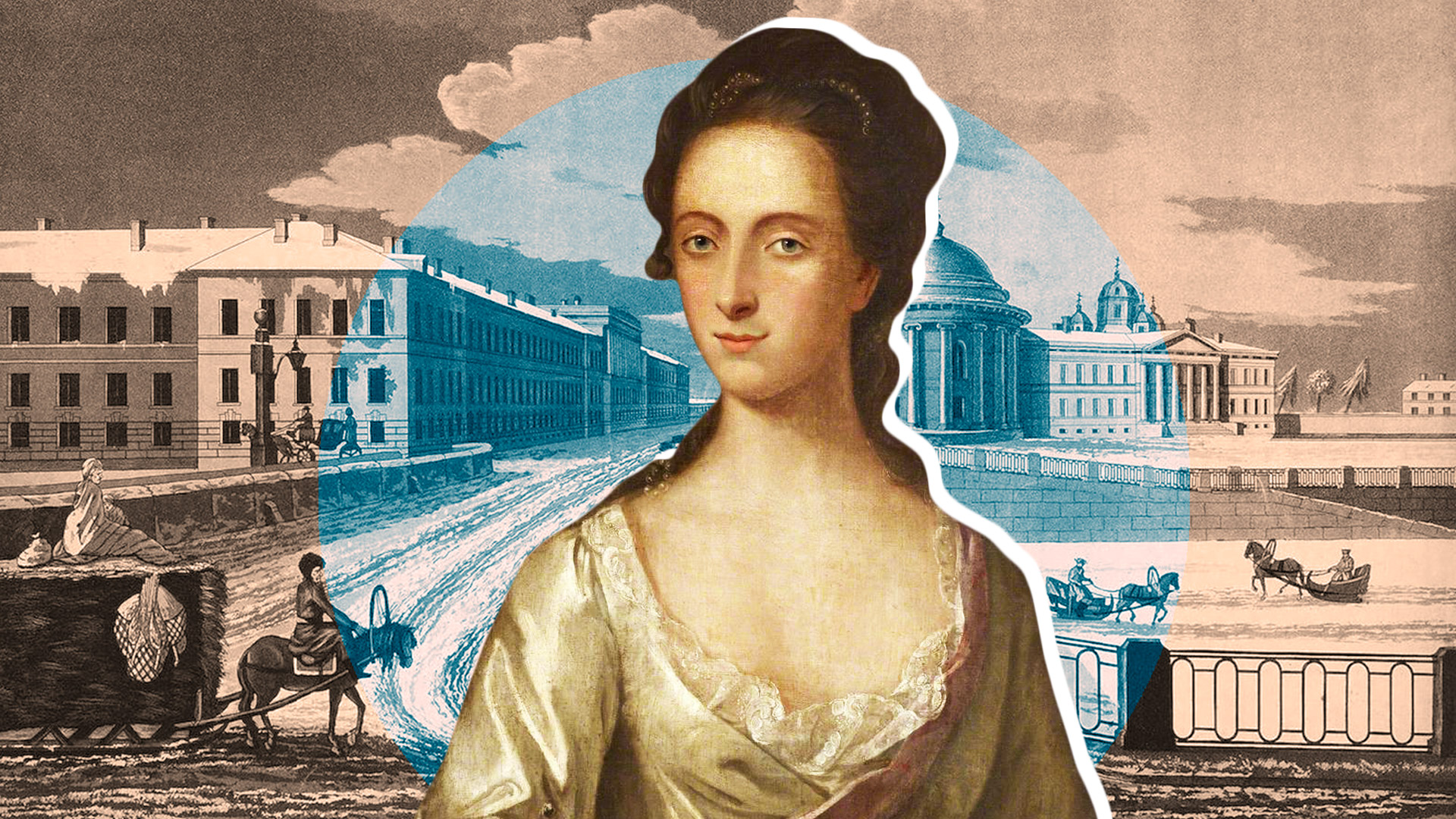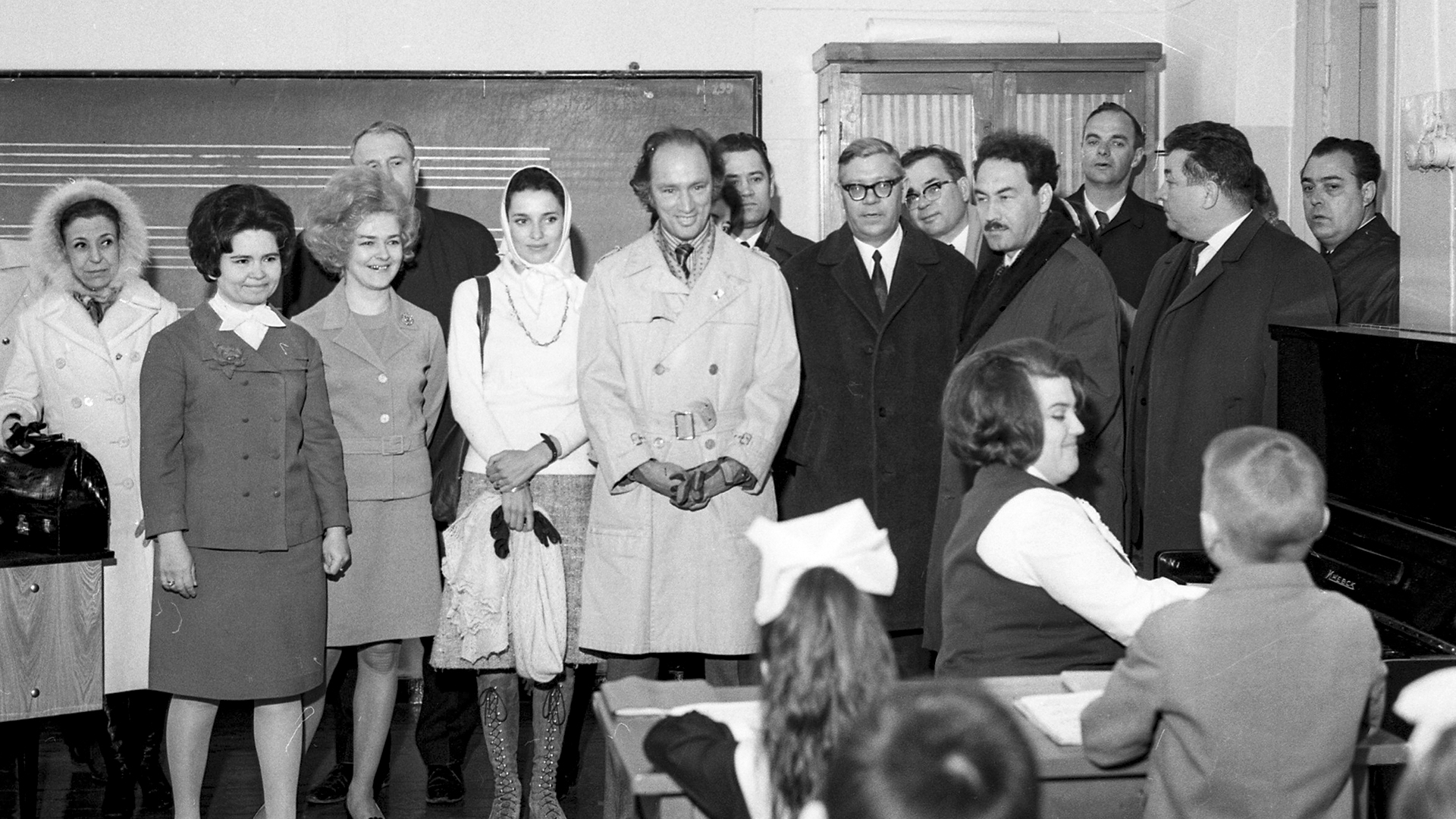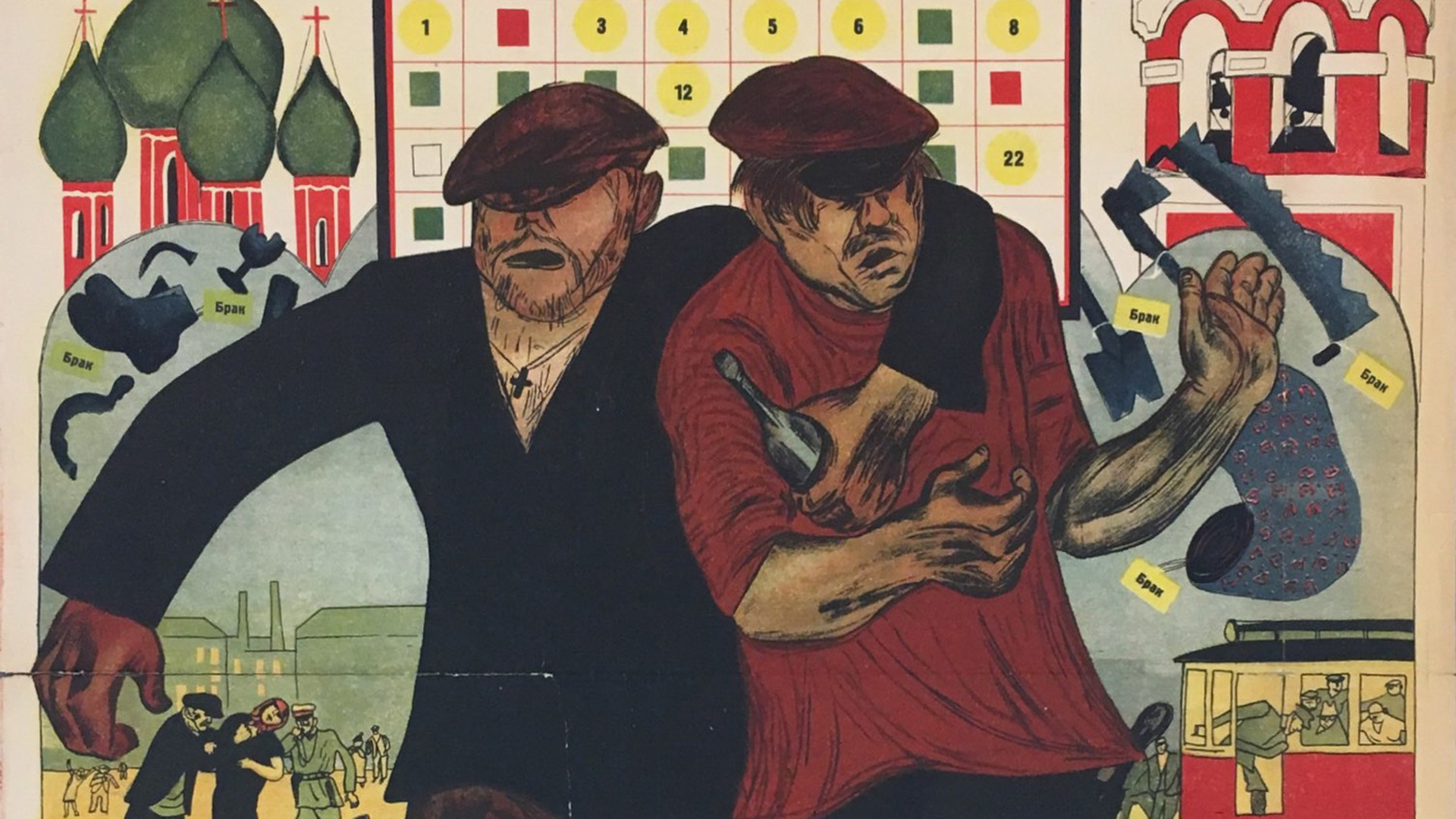
5 questions about Epiphany in Russia
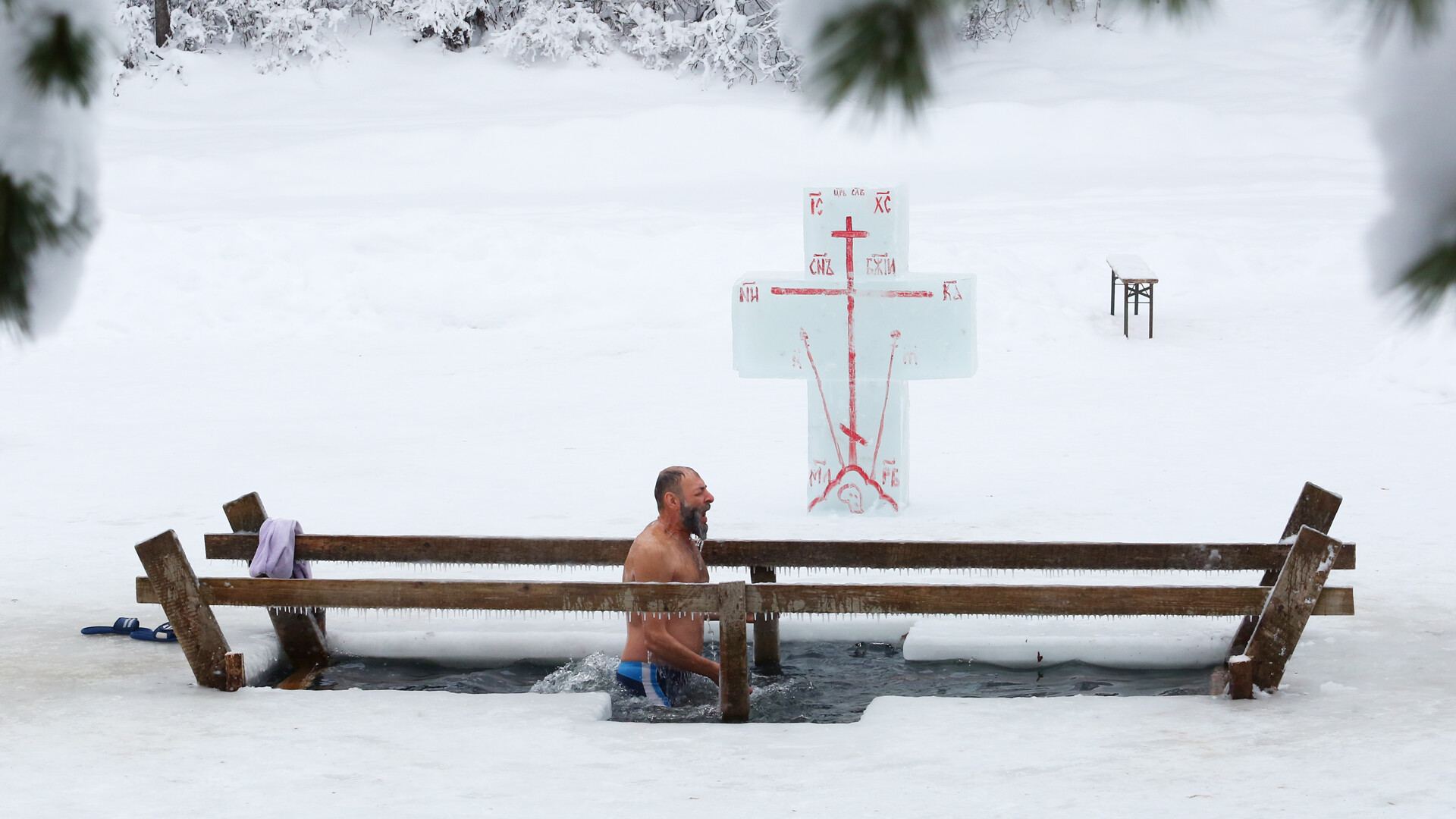
1) How did the date of the Baptism of Jesus appear?
In the Orthodox church, the Baptism of Jesus is a Christian feast established in honor of the Gospel story of the baptism of Jesus Christ in the Jordan River by John the Baptist. The holiday is celebrated in the Orthodox Church on January 6 (19). But why was this date chosen?
The Russian ‘Orthodox Encyclopedia’ cites two main hypotheses. According to the first, the holidays of Christmas and Epiphany used to be one and the same holiday, which replaced the ancient pagan holiday of the solstice – December 25 on the old moveable calendar and January 6 on the Julian calendar (January 19th according to the present-day Gregorian calendar).
The second hypothesis states that the date of January 6 is established by means of complex chronological calculations and is connected with dates of the death of Christ and Jewish Easter.
In the Catholic church, this holiday is named Epiphany and commemorates the visit of the Magi, as well as the Baptism of Jesus.
2) Why was Jesus baptized, since he was already sinless?
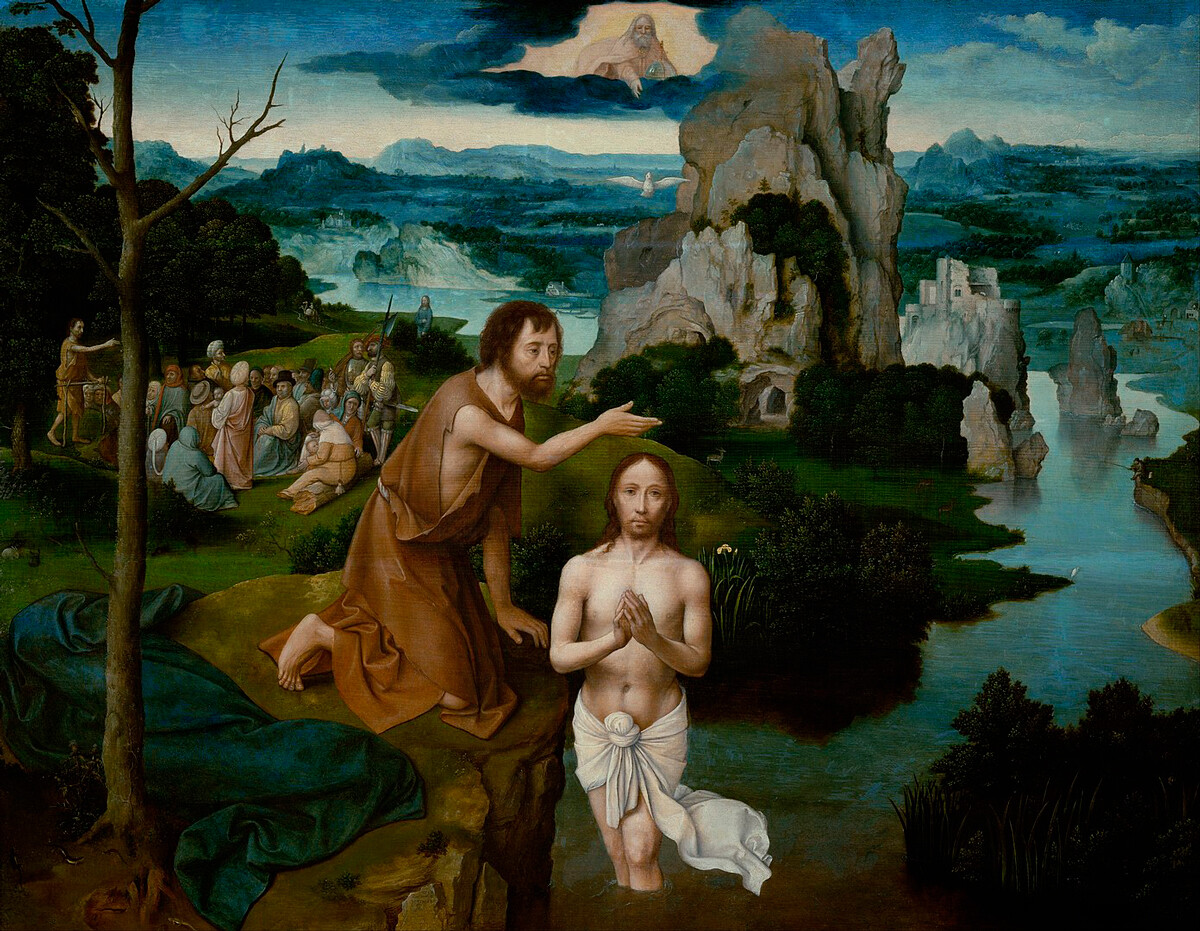 'The Baptism of Christ,' c. 1515 by the Flemish Renaissance painter Joachim Patinir
'The Baptism of Christ,' c. 1515 by the Flemish Renaissance painter Joachim Patinir
According to the Gospel, when Jesus came to John, who was baptizing people at the Jordan River, the Baptist was surprised and said: "I need to be baptized by you and you come to me?" To this, Jesus replied that "it is necessary for us to fulfill all righteousness", after which he was baptized by John. During the baptism, according to the Gospel, the Holy Spirit descended on Jesus from heaven in the form of a dove and a voice from heaven said: "You are my beloved son; in you I am well pleased!"
In this way, Jesus set an example for all his followers. As theologian Alexander Moiseenkov writes, "the same rite is undergone to emphasize the connection between him and those who believe in him" – anyone who has undergone the rite of baptism is connected to God through it.
3) What is Holy Water?
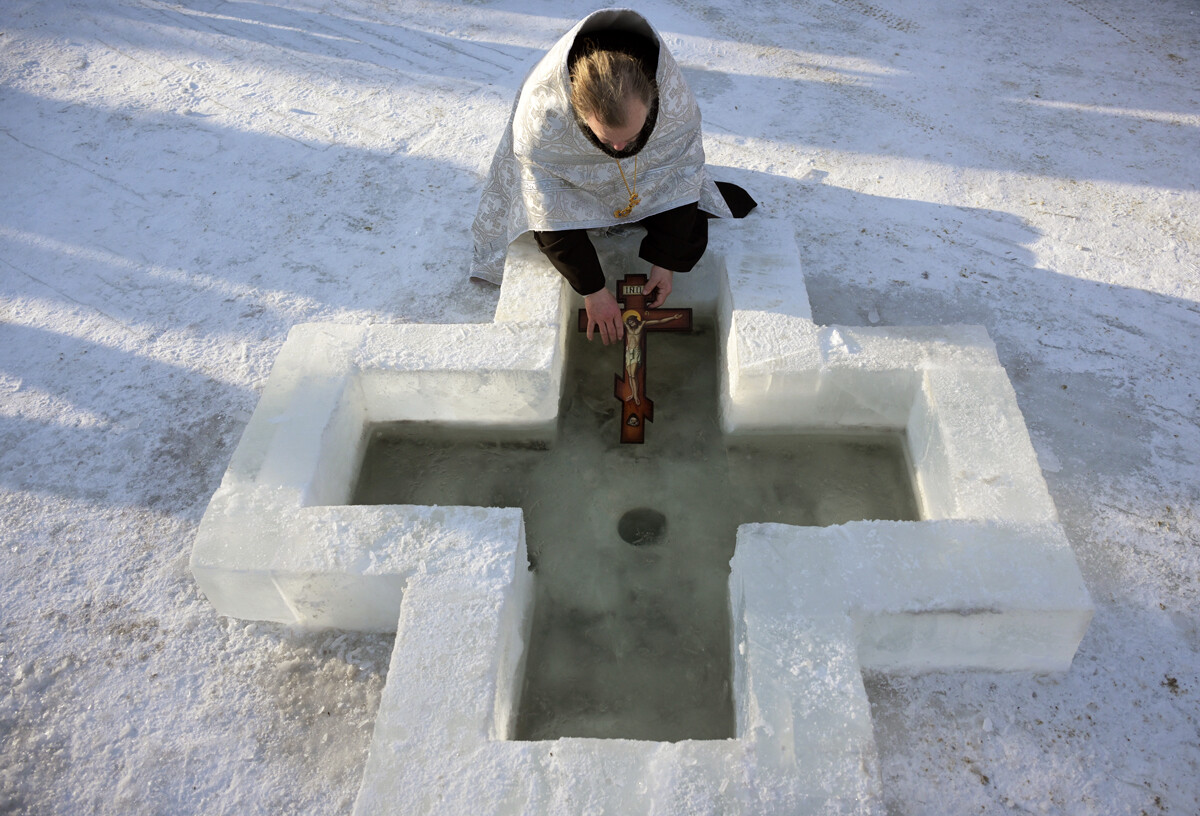 Water being consecrated in Novosibirsk region, Russia
Water being consecrated in Novosibirsk region, Russia
Baptism in Christianity is not only a feast, but a separate sacrament connected with the naming of the baptized person. During the sacrament, the priest uses holy water – he immerses the person to be baptized in it three times (usually if it is an infant) or sprinkles (douses) them with holy water if he is an adult.
Holy water (hagiasma’) is water sanctified with a special prayer and the rite (order) of consecration. After the prayer, the water in the river or lake where the rite was performed, becomes Hole, Christians believe. This tradition in Christianity has been known since 2nd-3rd centuries. John Chrysostom said in his sermon in the year 387: "At midnight on this feast, everyone, having scooped up water, brings it home and keeps it for a whole year… The quality of this water does not deteriorate with the passage of time; on the contrary, the water scooped today remains unspoiled and fresh for a whole year and, often, two or three."
Water consecration in Orthodox Christianity can be “great” (on Epiphany) and “small” (on different days of the year in the temples, during water-sanctification prayers). On Epiphany, the water is sanctified with a solemn procession to the water reservoirs, known as "going to the Jordan". Water is consecrated for two days – on Epiphany Eve, January 18, and on Epiphany itself. Water consecrated according to the rite of the Great Consecration can be drunk only on an empty stomach, after a special prayer.
4) Does taking a dip in an ice hole mean following the example of Jesus?
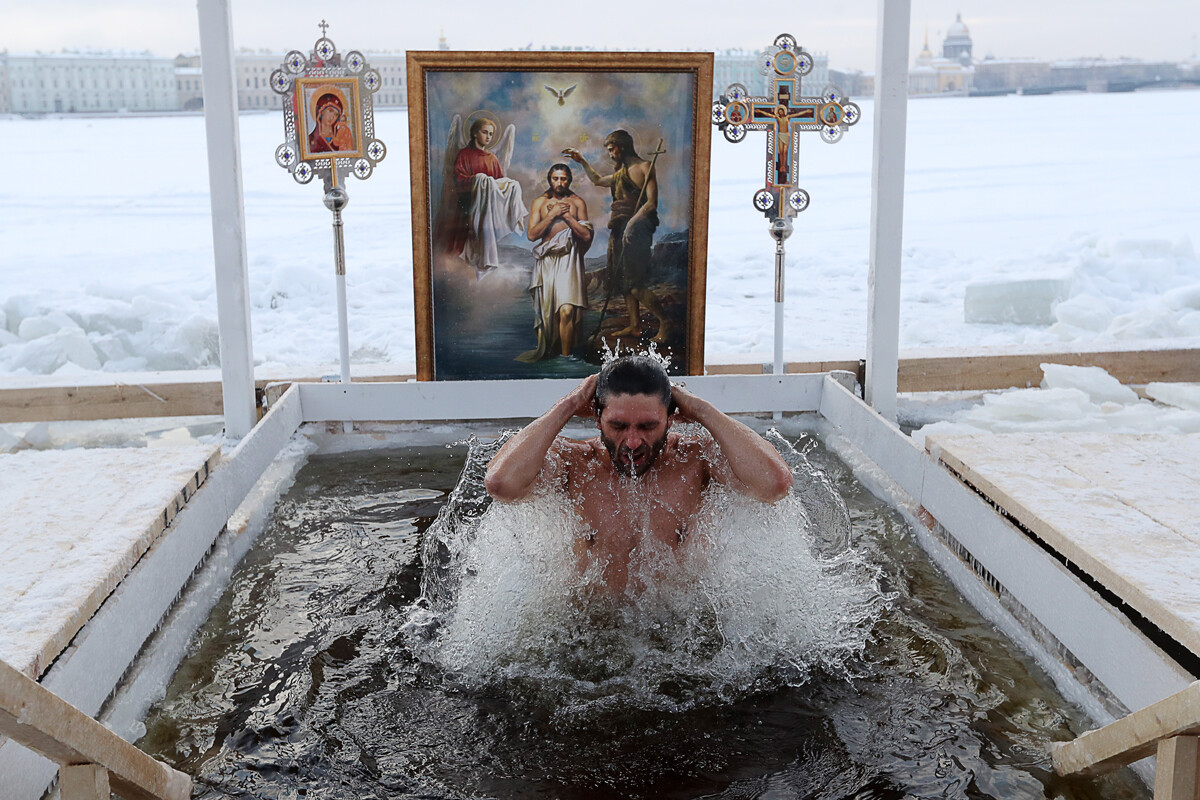 A man bathes in an ice-hole in Neva river in St. Petersburg, Russia
A man bathes in an ice-hole in Neva river in St. Petersburg, Russia
Orthodox Christian theologians are unanimous – bathing in an ice hole on an Epiphany is not a Christian tradition. It does not "wash away sins," as people commonly believe. Back in 1892, Russian spiritual writer Sergei Bulgakov noted: "Those who bathe on this day are especially those who have been dressed up (for pagan rites on ‘Svyatki’ – ed.), been fortune-telling and so on, superstitiously attributing to this bathing the cleansing power of these sins."
By the way, in St. Petersburg during the water blessing near the Winter Palace, which was attended by the royal family, people drank the Holy Water directly from the Neva River, but no one bathed.
Modern historians believe that these baths are probably a legacy of an older, pagan water festival associated with the winter solstice.
5) How was Epiphany celebrated in the Russian countryside?
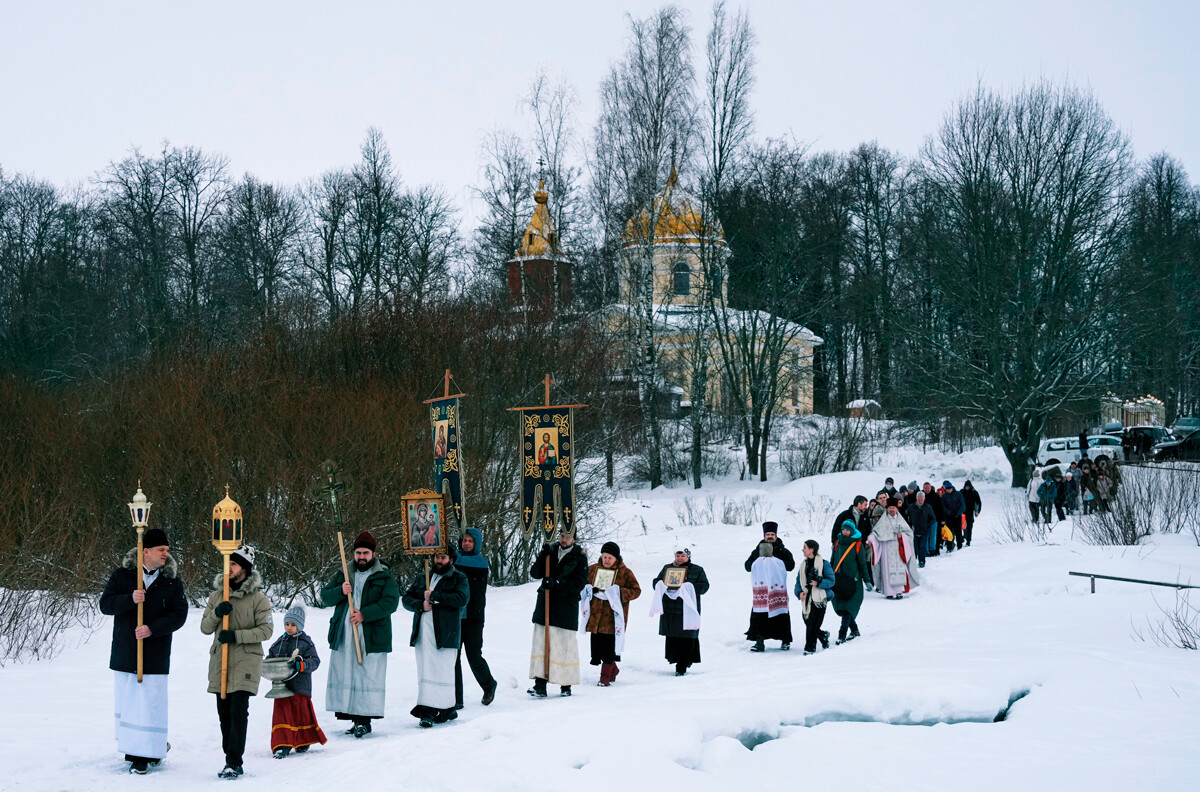 A walk of the cross on Epiphany in Saint Petersburg region, Russia
A walk of the cross on Epiphany in Saint Petersburg region, Russia
In the Russian countryside, the feast of the Epiphany was associated with many strong traditions, probably pre-Christian ones. The folk name of the feast is ‘Vodokreshchi’ (‘crossed waters’ or ‘baptised waters’) and Holy Water water plays a central role in it. It was sprinkled on the house, people, the yard, livestock, beehives, vegetable gardens, poured into the well, added to the fodder of cattle, in barrels of wine, etc.
For peasants, bathing in the baptismal ice-hole was obligatory, the ice-hole itself and everything around it was considered "holy" – for example, within 12 days after the water sanctification in the ice-hole, it was forbidden to wash clothes there. The dipping in the ice-hole would cure the sick people of their illnesses and the healthy people would be cleansed of sins, the peasants were convinced. Water was also associated with the spells against fires, which were usually read on Epiphany: "The saints followed me, carrying a bowl of water. If there is a fire, the saints will extinguish the fire."
On Epiphany, purification rituals were conducted in the house, "driving out demons" by the noise of dishes, snapping whips and just loud shouts. At the same time, the Feast of Epiphany "opened" the wedding weeks, which lasted until Maslenitsa week.


